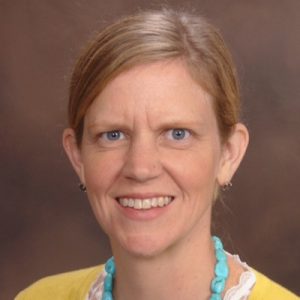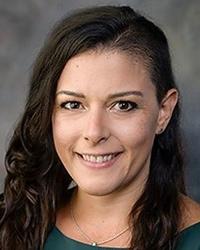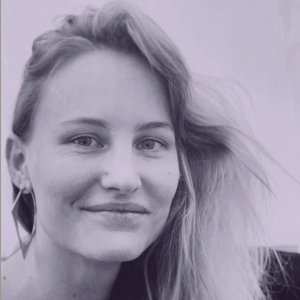Johns Hopkins UniversityEst. 1876
America’s First Research University
As physicians in the Johns Hopkins Hospital Neonatal Intensive Care Units (NICUs), Renee Boss and Sara Munoz-Blanco know their patients’ outcomes following discharge are often directly linked to effective communication with parents. Making the transition from hospital to home can be overwhelming and frightening for any parent, and even more so when the parents can’t effectively ask questions or receive information because of a language barrier.

To help address this problem among Latinos, the fastest-growing ethnic group in both Maryland and the United States, Boss and Munoz-Blanco collaborated with the Dracopoulos-Bloomberg iDeas Lab at the Johns Hopkins Berman Institute of Bioethics to develop “Nos Vamos a Casa,” (which translates as “We Are Going Home”) a novel web-based interface that enables patient families and their doctors to overcome barriers of language and literacy to exchange vital information.
“We care for a substantial number of Latino Spanish-speaking children and their families across our health care system who often have medical complexity and ongoing health care needs after NICU discharge,” says Boss, the Rembrandt Foundation Professor of Pediatric Palliative Care at Johns Hopkins University School of Medicine, and a Berman Institute faculty member.
“Our tool will increase family’s knowledge about their child’s medical big picture, being a NICU parent, and preparedness of anticipated challenges after NICU discharge. We believe it will help improve communication between families and medical teams during their admission, promote family-centered care, as well as better prepare families for life at home.”
Available at the patient’s bedside, “Nos Vamos a Casa” contains a question prompt list (QPL) that Boss and Munoz-Blanco developed in a pilot study by conducting focus groups with NICU and primary care providers, as well as Spanish-speaking parents of NICU patients. As parents review the QPL, accessible in Spanish in both print and audio, they can flag the questions they need to have addressed. Members of their care team, including doctors, nurses, case managers and social workers, then access that list of highlighted questions electronically, in either English or Spanish, and use it as a guide for discussion with parents.

“During our pilot study, providers found the QPL helpful. Families reported they would use our tool and would recommend it to other Latino families in the NICU. In addition, they reported the tool would help them to prepare for life at home, make it easier to ask questions, to think about questions, and even put their concerns into words,” says Munoz-Blanco, an assistant professor of pediatrics in the School of Medicine and the project’s principal investigator. “But there were still literacy barriers and we wanted to have an interactive, user-friendly web-based audio interface that would make both families and physicians more likely to use the QPL.”
Supported by a JHU Innovation Grant and grant from the Thomas Wilson Sanitarium for the Children of Baltimore City, Boss and Munoz-Blanco worked with the Berman Institute’s Dracopoulos-Bloomberg iDeas Lab to create the solution they envisioned. Launched in 2022, the iDeas Lab is a creative studio utilizing new technologies and storytelling techniques to help bioethicists at Johns Hopkins share their work with the general public in more effective and engaging ways. “Nos Vamos a Casa” is the first QPL ever to be designed in audio format, and its user-friendliness was intentional and essential to overcome potential literacy barriers.
“This has been a very rewarding project for the iDeas Lab. We collaborated with the researchers from the outset, helping them identify the right communications vehicle then working with them throughout the development process to get the best possible result for families as well as their doctors and other care providers,” says Lauren Arora Hutchinson, director of the Dracopoulos-Bloomberg iDeas Lab.

“While we are really proud of other public-facing projects we have done, such as podcasts with hundreds of thousands of listens, we found it inspiring to work on this tool which had such a specific audience. Renee and Sara’s earlier research had demonstrated the need to create a tool for supporting parents at such a crucial period of their life, so using technology and storytelling to find a solution to this communication issue was important to our values as a creative lab.”
To provide the Spanish-language audio narration, the team turned to a Spanish-speaking parent. As the tools were being developed, a consultation session was held with members of Baltimore’s Latino community through Centro SOL (Salud y Oportunidades for Latinxs) to ensure they were not only useful but also culturally appropriate.
Earlier this spring, families and medical teams at Johns Hopkins Hospital began using “Nos Vamos a Casa.” Boss and Munoz-Blanco will assess whether both groups find it helpful and continue to improve it based on their feedback. If it is successful, they hope to share it with families and NICUs across the country, at first in Spanish and then in other languages as well.
“We’re doing implementation science,” Boss says. “It’s not just studying patients and families, it’s doing medical research that will benefit those patients and families and then making sure it’s available to them.”
This story was first published on the Berman Institute’s website.
Topics: Faculty and Staff, Friends of Johns Hopkins Medicine, Berman Institute of Bioethics, Johns Hopkins Medicine, School of Medicine, Promote and Protect Health